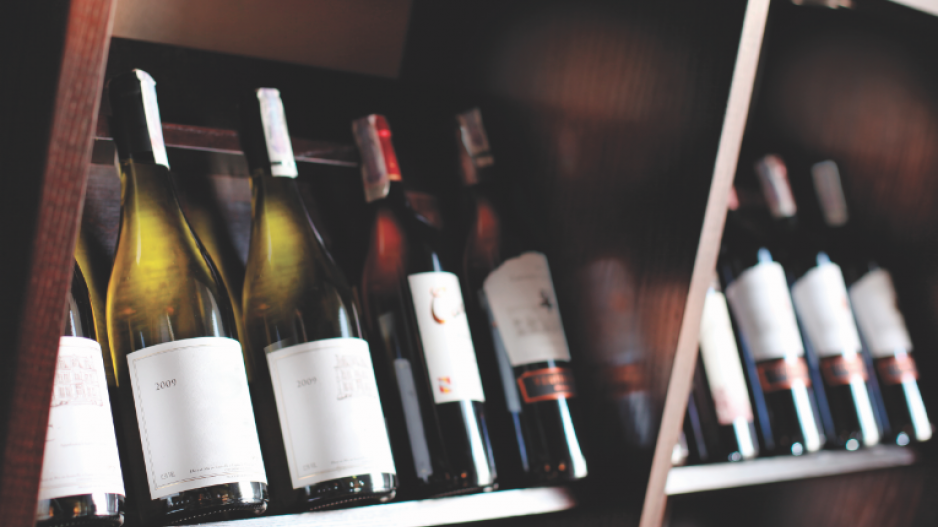The April 1 liquor law change that will affect the most B.C. business owners will likely be the separation of the wholesale and retail divisions of the provincial government’s British Columbia Liquor Distribution Branch (BCLDB) liquor-selling monopoly.
“In terms of how [liquor law changes] impact businesses, this is the biggest piece,” said Attorney General Suzanne Anton.
Markups under the current system create a retail price for a bottle of wine. That price is then reduced by different percentages to create various wholesale prices for different classes of retailers.
The post-April 1 system will have a similar set of markups, but instead of the formula adding up to a retail price, it will add up to a new, universal wholesale price.
Government liquor stores will then buy alcohol at the same wholesale price as private retailers, and all store owners will be able to set prices according to desired profit margins.
Anton told BIV that the approximate profit margin for BCLDB stores will “more or less” be 16%.
To help BCLDB stores compete, they will be allowed to extend their daily hours of operation and include Sunday and holiday openings. Some stores will also be upgraded with refrigeration units for beer and wine. Those changes are aimed at making BCLDB stores more profitable.
NDP liquor critic David Eby pointed to BCLDB documents that show that BCLDB store operations currently need a 17.2% markup on products to break even.
But whether increased hours and the addition of fridges will be enough to increase sales sufficiently to allow BCLDB stores to break even with a lower markup is something Eby is watching.
The B.C. government’s contract with British Columbia Government and Service Employees’ Union liquor store workers commits it to keep at least 185 of its 196 liquor stores open until March 2019.
Anton said it’s too soon to speculate about whether underperforming BCLDB stores would close.
Here’s how new wholesale pricing model will work
Using a California wine that the winery owner sells for $20 as an example, here’s how B.C.’s liquor pricing will change as of April 1.
Under the current system, the BC Liquor Distribution Branch (BCLDB) applies a 117% markup, or tax, on the first $10.25 of that wine and a 51% markup on the remaining $9.75.
The result is a $36.96 retail price. The BCLDB then adds a 10% provincial sales tax (PST) and 5% goods and services tax (GST), raising the wine’s BCLDB shelf price to $42.50.
The province’s 12 independent wine stores get a 30% discount on the $36.96 retail price. So their wholesale price is $25.87. They’re then free to mark up that price before adding the PST and GST to create their shelf price.
Meanwhile, the province’s 670 private liquor stores get a 16% discount off the BCLDB’s retail price. Their discount is less because they’re allowed to sell beer and spirits as well as wine. So they pay the BCLDB $31.05 for the wine and then add their profit margin, PST and GST to get their shelf price.
After April 1, an 89% markup will be applied on the first $11.75 and a 27% markup on the remaining $8.25, resulting in a wholesale price of $32.68.
So Marquis Wine Cellars, Liberty Wine Merchants and other wine stores will pay 26.3% more for the wine under the new system; their many private competitors, who have the advantage of being allowed to sell beer and spirits, will pay more too – an additional 5.2% for the wine.
The percentage-based markup for spirits will become 124% with a graduated markup based on cost above $21 per litre.
After April 1, there will still be various flat taxes on beer to create a wholesale price. The new beer taxes will be more gradual but, on the whole, are intended to yield the same amount of revenue for government.
Restaurants will continue to be required to purchase wine, beer and alcohol from the BCLDB and pay the BCLDB retail price.•




